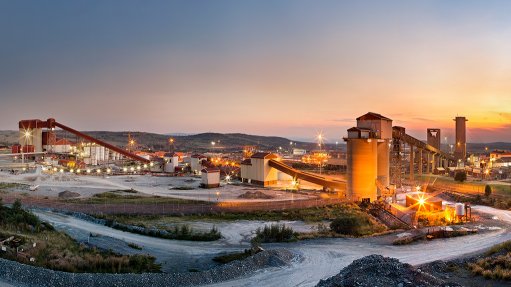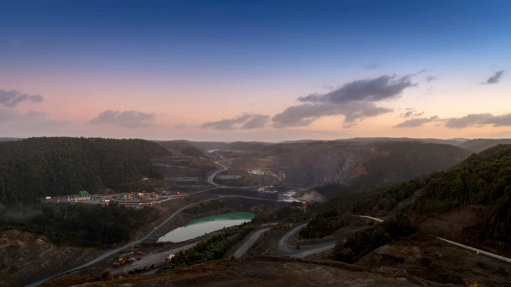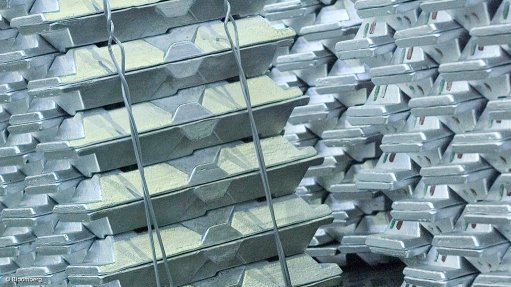CoM committed to finding workable solutions that are in the national interest
The Chamber of Mines (CoM) has drawn a firm line in the sand regarding its opposition to unethical leadership, bad governance and State capture, CoM president Mxolisi Mgojo asserted on Thursday.
“We are doing what is necessary to ensure better outcomes for our sector and our country. The chamber remains committed to finding workable solutions in the national interest. But, no single grouping can do this alone,” he noted during his keynote address, titled ‘What does the mining industry contribute to the South African economy?’ at the Joburg Indaba conference.
Mgojo noted that, in speaking of the industry’s role as the historical foundation of the South African economy, the industry cannot forget the part it played in shaping society.
“We recognise the continuing socioeconomic legacies of this history. That was why, 20 years ago, the industry began talking to government about how best to remedy these.
“We were – and remain – supportive of the new mineral rights regime that transferred the ownership of mineral rights to the custodianship of the State, and were integrally involved in the development of the first Mining Charter, aimed at achieving a shared vision of a globally competitive mining industry that draws on the human and financial resources of all South Africa's people and offers real benefits to all South Africans,” he said.
Mgojo conceded that the industry had not yet achieved all it had set out to change, as indicated by the state of some mining towns and the composition of the industry’s workforce.
However, while the industry must acknowledge that South Africa is no longer viewed as a favoured mining investment destination, it does not indicate a lack of progress. “There is material and significant progress in the transformation journey, even as we acknowledge that there remains a long way to go,” he said.
While much work remains to be done, Mgojo warned that the CoM will not be forced to undertake transformation in a way that it believes will “destroy the industry and benefit only a narrow group”.
Mgojo further asserted that to get the mining industry back on track will require ethical leadership, good governance and policy and regulatory certainty.
“It also requires a statutory and regulatory regime that, while continuing the ongoing transformation journey, based on realistic targets and a properly negotiated outcome, recognises that the sector also needs to be competitive to attract investment and grow,” Mgojo said.
While the CoM has submitted an application to court to have Mining Charter Three interdicted, CoM leaders are working hard to develop ideas on what a more suitable Mining Charter could look like, and not only talking among themselves.
SENSIBLE TRANSFORMATION JOURNEY
“We are talking to civil society organisations; we are talking to the unions; we are talking to political and government leaders, apart from those we are dealing with through the courts.
“It’s important for us to understand what was their thinking and did they go about engaging with each other and what outcomes were not resolved. We will talk to stakeholders, such as the Industrial Development Corporation and the Public Investment Corporation. We know that real consultation, engagements and partnerships are the key to a sensible transformation journey and outcomes,” he underscored.
“This journey, we understand, is that we have to find one another and start a conversation and we are doing that,” Mgojo said.
The chamber is also working on the development of a globally competitive mining industry, albeit having seen slow progress on this front despite the original Mining Charter.
Mgojo outlined that the connections and commitments made during the Mining Phakisa process have been strengthened and have grown. The old Chamber of Mines Research Organisation campus in Richmond – now designated as a mining innovation precinct – has more than 50 full-time occupants focussed on making the industry safer, more efficient and more people-centric.
Collaboration with government and quasi-government bodies remains strong, although, regrettably, this does not involve the Department of Mineral Resources (DMR), Mgojo said.
“We, as the Chamber of Mines, representing our members, remain committed to an African Mining Vision. And, as the chamber, representing a significant portion of the industry, we will hold government to account and, in parallel, ensure that our own performance on governance is beyond reproach,” he said.
Mgojo also emphasised that the chamber would hold its members to account through the Chamber Membership compact, and ensure that its own house was in order.
Simultaneously, we will continue to call for ethical leadership and good governance in government, State-owned enterprises and, in particular, in the DMR. We will engage key stakeholders on this journey and, where necessary, turn to the courts to ensure outcomes that are in the national interest,” Mgojo warned.
INDUSTRY CONTRIBUTION
Mgojo said the mining industry remains the flywheel of the South African economy.
“When mining does well, it lifts many other sectors, those who supply inputs into the industry and through the significant export revenue it brings back into the economy. The converse is also true – when mining struggles, most other economic sectors also feel the pain”.
Despite a tough environment, the industry, in 2016, achieved R424-billion in mineral sales, with 25% of South Africa’s exports having come from primary minerals. This increases to more than 40% when semi-beneficiated minerals are included.
During the year, 457 698 direct jobs were sustained in the industry, representing 7.9% of private sector employment. Mgojo noted that if the job multipliers of the mining sector are included, that amounts to 1.3-million jobs.
Further, R120-billion was spent on employees’ earnings and R20-billion on corporate taxes and royalties.
Eighteen per cent of private fixed investment was made by the mining sector.
Meanwhile, R304-billion was contributed to gross domestic product (GDP), representing a 7.3% direct contribution to GDP and about 18% of GDP if all the multipliers were added.
Comments
Press Office
Announcements
What's On
Subscribe to improve your user experience...
Option 1 (equivalent of R125 a month):
Receive a weekly copy of Creamer Media's Engineering News & Mining Weekly magazine
(print copy for those in South Africa and e-magazine for those outside of South Africa)
Receive daily email newsletters
Access to full search results
Access archive of magazine back copies
Access to Projects in Progress
Access to ONE Research Report of your choice in PDF format
Option 2 (equivalent of R375 a month):
All benefits from Option 1
PLUS
Access to Creamer Media's Research Channel Africa for ALL Research Reports, in PDF format, on various industrial and mining sectors
including Electricity; Water; Energy Transition; Hydrogen; Roads, Rail and Ports; Coal; Gold; Platinum; Battery Metals; etc.
Already a subscriber?
Forgotten your password?
Receive weekly copy of Creamer Media's Engineering News & Mining Weekly magazine (print copy for those in South Africa and e-magazine for those outside of South Africa)
➕
Recieve daily email newsletters
➕
Access to full search results
➕
Access archive of magazine back copies
➕
Access to Projects in Progress
➕
Access to ONE Research Report of your choice in PDF format
RESEARCH CHANNEL AFRICA
R4500 (equivalent of R375 a month)
SUBSCRIBEAll benefits from Option 1
➕
Access to Creamer Media's Research Channel Africa for ALL Research Reports on various industrial and mining sectors, in PDF format, including on:
Electricity
➕
Water
➕
Energy Transition
➕
Hydrogen
➕
Roads, Rail and Ports
➕
Coal
➕
Gold
➕
Platinum
➕
Battery Metals
➕
etc.
Receive all benefits from Option 1 or Option 2 delivered to numerous people at your company
➕
Multiple User names and Passwords for simultaneous log-ins
➕
Intranet integration access to all in your organisation


















